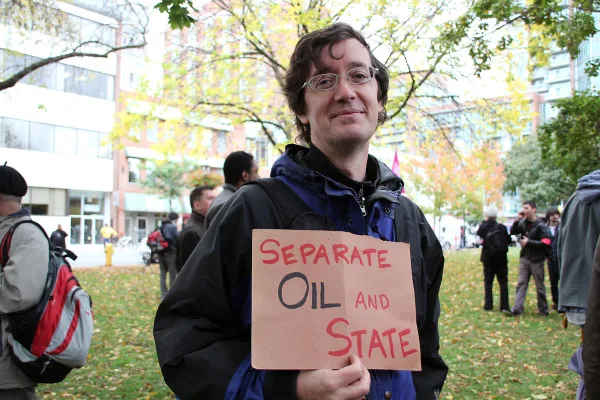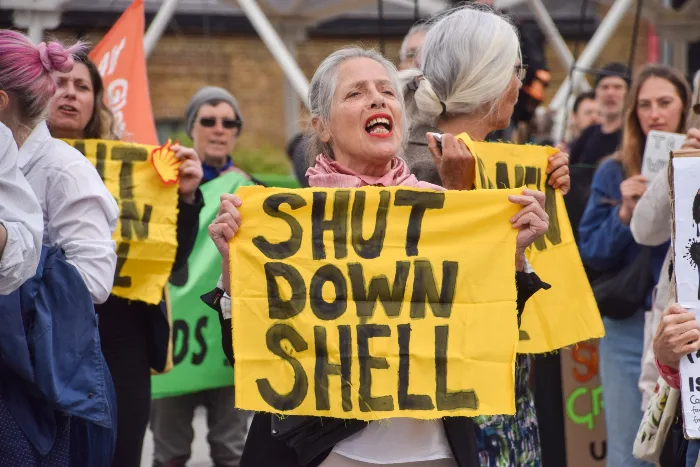In today’s market, “eco-friendly” and “carbon-neutral” are more than just buzzwords. They’re everywhere in ads and promotions. Yet, verifying these claims is tough.
The Canadian government is stepping up. It aims to beef up the Competition Bureau’s role in tackling “greenwashing.” This term refers to misleading environmental claims by companies.
Despite these efforts, experts warn Canada still trails behind the European Union and others in ensuring truth in environmental claims.
“We are lagging,” says Matt Hulse from Ecojustice, a Canadian environmental group. He points out that Canada falls short compared to actions taken abroad.
This push for stronger regulations comes amid rising greenwashing accusations. Notably, Canada’s largest bank and an oilsands group are under investigation.
Some business leaders worry too. They fear greenwashing could tarnish the efforts of those genuinely trying to be eco-friendly.
Changes to the Competition Act are on the horizon. New laws in Parliament will demand that businesses back up their environmental claims with solid evidence.
Yet, critics argue, enforcing these new rules will be challenging. “We don’t have the level of oversights and enforcement that we need,” Hulse adds.
This scenario underscores a critical need for Canada to bolster its regulatory framework. The goal is to ensure that companies’ green claims are both accurate and trustworthy.

Offenders Face Little Consequences
The battle against greenwashing in Canada is moving at a snail’s pace, with the Competition Bureau cracking down on misleading environmental claims. Over the last two years, eight investigations have been launched. High-profile targets include the Royal Bank of Canada and Pathways Alliance, a group representing key oilsands producers. Yet, resolutions remain on the horizon, highlighting a system slow to penalize.
A standout case saw Keurig Canada fined $3 million in 2022. The company claimed its K-Cup pods were recyclable, a statement the Competition Bureau found misleading. This rare enforcement action signaled a potential shift towards holding companies accountable for greenwashing.
Shell Canada’s recent experience further illustrates the issue. The company ended a campaign that promoted carbon-offset projects at gas pumps. This came after Greenpeace complained, arguing Shell’s claims lacked solid evidence. “We actually need to have some real teeth put into our truth-in-advertising laws,” said Keith Stewart, a Greenpeace spokesperson. Despite the campaign’s three-year run, it was halted before the bureau concluded its investigation, spotlighting gaps in Canada’s regulatory framework.

Compare Canada’s reaction to the Netherlands, who acted swiftly against Shell in 2021, banning a similar campaign. Shell contested, but ultimately lost. This quick response underlines the effectiveness of robust advertising laws, a sharp contrast to Canada’s sluggish pace.
Shell decided to retire the Canadian program, focusing on “providing our customers with the most competitive offers, including low-carbon alternatives,” said Stephen Doolan, a company spokesperson. This series of events underscores the pressing need for Canada to enhance its enforcement mechanisms against greenwashing, ensuring companies’ environmental claims are both transparent and backed by evidence.
Should Canada Be More Like The EU?
In Canada, the fight against greenwashing is likened to a game of ‘Whac-A-Mole.’ Environmentalists argue the crackdown should extend beyond product claims. It should cover company commitments, like net-zero by 2050 promises, says Matt Hulse from Ecojustice. Such pledges need public evidence to be credible.

A specialized watchdog within the Competition Bureau could help, akin to a unit in the UK. “It all starts with the enforcement capacity,” Hulse points out. He questions if Canada is addressing the issue systematically or just reacting to complaints as they arise.
The European Union is stepping up its game. It plans stricter rules against deceptive marketing. A proposed law would ban terms like “environmentally friendly” unless companies provide solid proof.
Businesses seek clarity as well. Innovation Canada, overseeing the Competition Bureau, mentions proposed rules aim to enhance the bureau’s enforcement capabilities. These changes would apply across the economy.
However, there’s a pressing concern. Without tougher regulations, public trust in green commitments could worsen. A Deloitte survey reveals over half of Canadian consumers doubt most green claims by brands.
More To Discover
- MIT Tech Vaporizes Rocks to Go Deep For Massive Clean Energy Source
- NY Attorney General Sues Pepsi Over Alarming Plastic Pollution in Buffalo River, Endangering Public Health and The Environmental
- Mystery Solved: Floating Object off Washington Coast Revealed as Renewable Energy Prototype
- Revolutionizing Fabric Recycling: New Method From Denmark Could Transform the Clothing Industry
The confusion isn’t limited to environmentalists. Businesses, too, are in a bind, explains Wren Montgomery from Ivey Business School. Many companies fear being accused of greenwashing. This fear makes them cautious about sharing their environmental efforts.
Montgomery shares insights from executives: “We want to do more and talk about what we’re doing. But we’re really scared of being called out for greenwashing.” This reflects the current state of ambiguity and the urgent need for clear, enforceable standards in Canada’s fight against greenwashing.



















